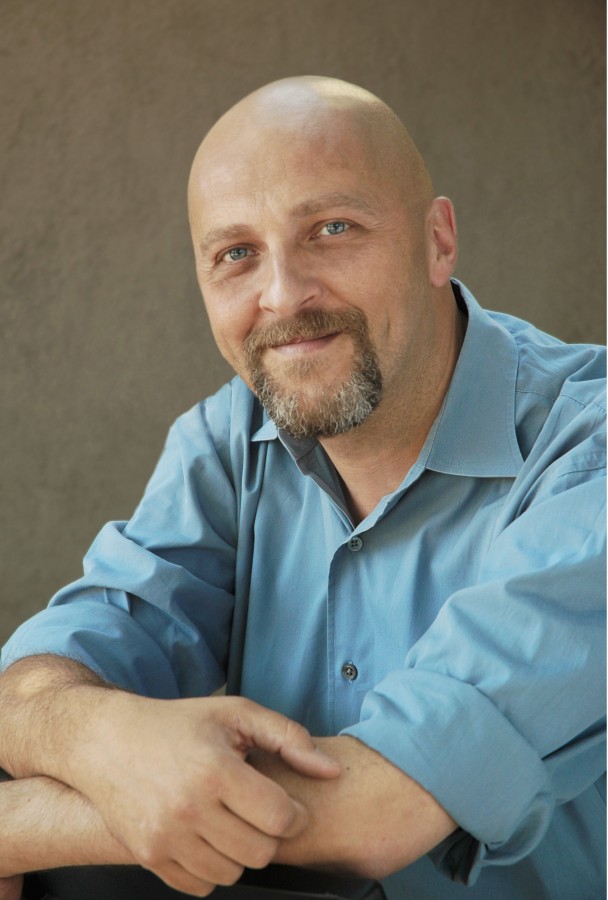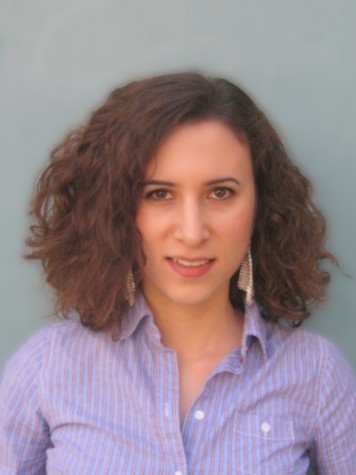Back in Bologna, Italy, Flavio Frontini went to college to become a veterinarian. He ended up becoming a professor of Italian language at a different college — in Glendale.
“I didn’t finish the university,” said Frontini. “When I discovered that chemistry was not my friend, I went into the military service and then while in the military service, I took a public exam for a position of accounting reviser.”
As an accounting reviser for the postal system, Frontini was in charge of all the post offices in Bologna — giving them directives that came from the Italian government.
At the same time, he took political science and Russian courses at Bologna University, thinking of becoming a diplomat some day.
His plans changed after a visit to Vienna.
“I met a group of American students. We became friends, and they told me ‘come to visit us in the United States, so you can improve your English.’”
The idea took root in his mind.
In 1990, at age 32, he did just that. He came to California to study English at Santa Monica College.
At that time, “my English was at the level of ‘me Tarzan, you Jane,’” joked Frontini.
It was at Santa Monica College that he first started teaching Italian when he was asked to tutor a fellow student.
“After the first class, when I saw in the face of the person that he understood … the joy of understanding gave me so much satisfaction that I didn’t have in the eight years of working for the government in Italy,” Frontini said.
The life of a foreign student was tough, said Frontini. He didn’t have family in the States, nor did he have any close friends.
Yet after some time, he decided not to go back to his job in Italy and remained in the United States.
He completed his bachelor’s, master’s, and doctorate in Italian literature at UCLA. All the while, he taught Italian language courses at the university.
During his years at UCLA, he also founded the language program at the Italian Cultural Institute in Los Angeles.
“The person in charge of the languages at UCLA asked me if I’d like to put together a program at the Italian Cultural Institute. So I started with a friend of mine, also a student of Italian,” said Frontini.
He had one semester left at UCLA, when an opportunity to teach Italian at USC presented itself. He took advantage of it, returning to complete his studies at UCLA only two years later.
It was during this last semester at UCLA that he got a call from GCC. The Italian professor was leaving the college, and they were looking for a new instructor. Frontini interviewed for the position and got the job.
He started teaching at GCC in 2000 and became full-time in 2007.
At first, only two levels of Italian were offered at the college: 101 and 102. Over time, as the popularity of the program grew, it gradually expanded into two more levels, 103 and 104.Frontini’s approach to teaching is key to the success of the program.
“[He’s] very dedicated to his students,” said Lourdes Girardi, language division chair. “He tries to engage them in a kind of a familiar, friendly environment, which is great for language. The students feel very comfortable in the class, and then you get a lot more out of them.”
Even outside of the classroom, when administrative decisions have to be made, “his priority is to make sure that the students of the college are taken care of, that things are geared to them, to their benefit,” Girardi said.
From giving away Italian language textbooks and dictionaries to holding special review sessions in the summer, from taking students to the opera and the local Italian restaurant to cooking for them at the end of the semester — Flavio, as his students call him, goes out of his way to make sure that students get the most out of his classes.
“He is very intelligent and engaging. He makes our class fun with his teaching methods and makes sure we understand the language and the lessons completely,” said Marylu Cortez, 20, an English literature major who is taking Italian 102.
Yet his classes are never strictly limited to Italian language and culture. Discussions about politics, cross-cultural similarities and differences, social problems and the like are also a frequent part of the class.
“What I’m trying to do is…I’m trying to open a window to the students to show that there is a different way of thinking, of habits, etc.,” said Frontini. “I’m not saying that it is better, I’m just saying there is another one. It’s up to them if they want to see through the window.”
His classes are also filled with jokes, funny stories and words of wisdom which Frontini always shares with his students.
“My belief in teaching is this: If you go to class and you’re bored, you don’t learn anything. If you laugh, you remember it,” he said.
Indeed, humor is the most essential attribute of Frontini’s teaching method.
“The first day of class I always say: ‘when you start speaking, A) don’t be afraid of making mistakes. B) if you say something in Spanish, I will start dancing the flamenco….’ And the students feel so relaxed after I goof around, that [when] they realize they’ve said something in Spanish, they start [dancing the flamenco].”
“Or they make a mistake at the board, and they are the first to laugh about their mistake. And that’s the important thing,” said Frontini, “not being afraid of making a fool of yourself.”
It is this comfortable atmosphere of laughter, fun, and friendliness that makes his students leave behind their shyness and learn to speak the language.
“The class is both entertaining and educational. He has a gift for teaching. By far one of my favorite professors,” said Victor Perez, 19, a psychology major who is taking Italian 102.
The only people who, at first, didn’t appreciate Frontini’s sense of humor were the writers and producers of “The Tonight Show with Jay Leno.”
During the 2006 Winter Olympics in Turin, the show was doing segments there. Frontini was asked to teach Italian to 12-14 members of the Jay Leno crew. Leno himself did not take the class.
“First day of class…I started joking with them,” said Frontini. “But they are writing jokes for Jay Leno, so my jokes fell flat on them. Nobody was laughing, and I was feeling terrible. Then I thought, you know what, we’re here not because I want to become the next stand-up comedian.”
Of course, after a while, Frontini succeeded in breaking the ice in that class as well.
But the real highlights of his career are the success stories of his college students — like the one who went on to work for the United Nations and another who decided to study in Frontini’s native Bologna.
“Last year I was in Bologna, and I hear ‘Flavio!’ and I turn. It was a student of mine…. He had an opportunity to study in Italy, and they asked him which city, and he said Bologna.”
Then there is Manuel, a former student who was inspired to major in Italian after taking Frontini’s course. He completed his Bachelor’s degree in Italian at UCLA, but Frontini advised him to also take Spanish as it is so useful in California.
Manuel recently received a doctorate in Spanish literature from UC Berkeley and is currently teaching there.
“We were talking one day,” said Frontini, “and Manuel said ‘we educators.’ At that point, I felt an enormous joy inside because this is no longer Manuel the student; it’s Manuel the colleague.”
“These are the satisfactions, the great moments,” said Frontini.
Another special moment in his life was when he taught Italian 104 for the first time. Having a conversation in Italian with students who did not speak a word of Italian three semesters ago — seeing that progress in them was a truly amazing experience, Frontini said.
“I will never be rich. With this job, you don’t get rich. But the satisfaction you get is priceless, really, really priceless,” he said, a happy smile beaming on his face.


